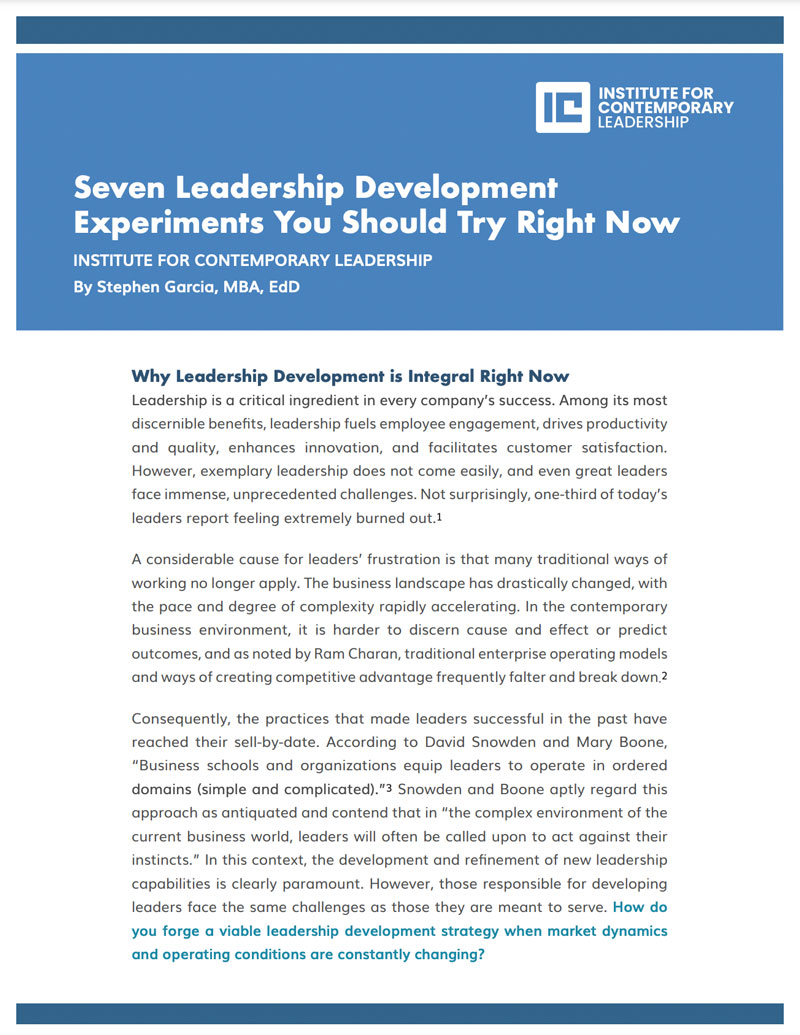Leadership is a critical ingredient in every company’s success. Among its most discernible benefits, leadership fuels employee engagement, drives productivity and quality, enhances innovation, and facilitates customer satisfaction. However, exemplary leadership does not come easily, and even great leaders face immense, unprecedented challenges. Not surprisingly, one-third of today’s leaders report feeling extremely burned out.
A considerable cause for leaders’ frustration is that many traditional ways of working no longer apply. The business landscape has drastically changed, with the pace and degree of complexity rapidly accelerating. In the contemporary business environment, it is harder to discern cause and effect or predict outcomes, and as noted by Ram Charan, traditional enterprise operating models and ways of creating competitive advantage frequently falter and break down.
Consequently, the practices that made leaders successful in the past have reached their sell-by-date. According to David Snowden and Mary Boone, “Business schools and organizations equip leaders to operate in ordered domains (simple and complicated).” Snowden and Boone aptly regard this approach as antiquated and contend that in “the complex environment of the current business world, leaders will often be called upon to act against their instincts.” In this context, the development and refinement of new leadership capabilities is clearly paramount. However, those responsible for developing leaders face the same challenges as those they are meant to serve. How do you forge a viable leadership development strategy when market… [download whitepaper to continue].


